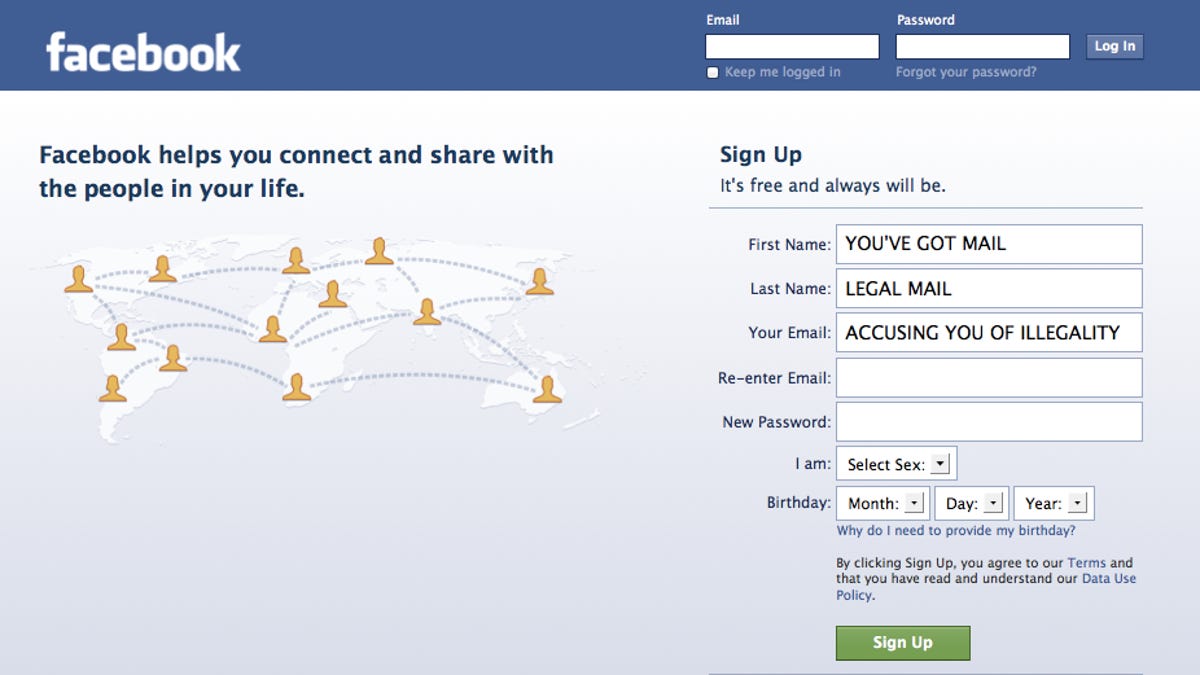Judge: Serve the miscreant via Facebook
A U.K. judge confirms that legal papers can now be served through the social-networking site. But what if you don't log on very often?

The distance between the poke and pokey is narrowing all the time.
No, I'm not referring to Gumby's horse, who would surely never transgress legally. Instead, I am moved by the words of a judge in the United Kingdom's High Court, who ruled yesterday that legal claims can be served on Facebook.
Many might feel that this is but to be expected, given that almost every human being who can write (and far too many babies) are on Facebook.
Indeed, the Telegraph quotes Jenni Jenkins, a lawyer at commercial law firm Memery Crystal, as saying: "It's a fairly natural progression. A High Court judge has already ruled that an injunction can be served via Twitter, so it's a hop, skip, and a jump away from that to allow claims to be served via Facebook."
I know that the world has been hopping, skipping, and jumping in order to make every human action and function occur on social networking's equivalent of the sidewalk.
In this case, I understand that the use of Facebook is designed to catch those who might seem to be otherwise unreachable. Yet some might fear for those who don't use Facebook regularly. And, indeed, for those who do.
The frisson for the former involves the idea that nasty legal papers will be sitting in wait for them like post-date stalkers, confident of their righteousness and ready to escalate matters to serious levels--although in this U.K. case, the judge did ask whether the Facebook page in question was regularly visited.
When it comes to regular Facebook users, though, there might be even greater fears. I had thought that serving a summons is something of a private affair. People come up to you, slap you on the shoulder with the papers, stick them into your surprised hands, and then scarper. Alternatively, you get a summons in the mail.
One imagines that the idea here is that a private message will be sent through Facebook.
I can still conceive, though, that there might be some enthusiastic legal operative who--in the rush to lob a cruel order onto the site--might press a wrong button and display it on the target's wall.
Please imagine logging on while still bleary-eyed and unsure-legged to discover that 12 of your friends have already commented on a wall post reading: "Hey, we're suing you for $3 million, you contract-breaking recidivist."
You might think these fears are excessive. But if a math-and-science teacher can post a naked picture of himself on his Facebook wall when he meant it only for his lover's eyes, then what might some paralegal perpetrate?
How do you know it's the right person, anyway? Sometimes, searching by name on Facebook is akin to searching for needle in an ocean. Imagine if the wrong person gets papers--and then they are somehow displayed for all to see.
Here's another thought that might trigger some opposition: If you receive some unpleasant (and, perhaps, erroneous) legal missive via Facebook, does the site keep it for ever? After all, Austrian law student Max Schrems was mightily surprised by the information that Facebook kept about him.
I know we're all desperate to be modern about these things. And I am sure, as we all are served "better" ads over time by Google and Facebook, we will think anything that doesn't come through a social network is plain peculiar.
But, until that time of complete social makeover, perhaps it's best to ensure that your privacy settings are as secure as you can make them. Especially if you fear that you might have done something that someone else doesn't really like.
Or better still, some might think, just stay off Facebook.

